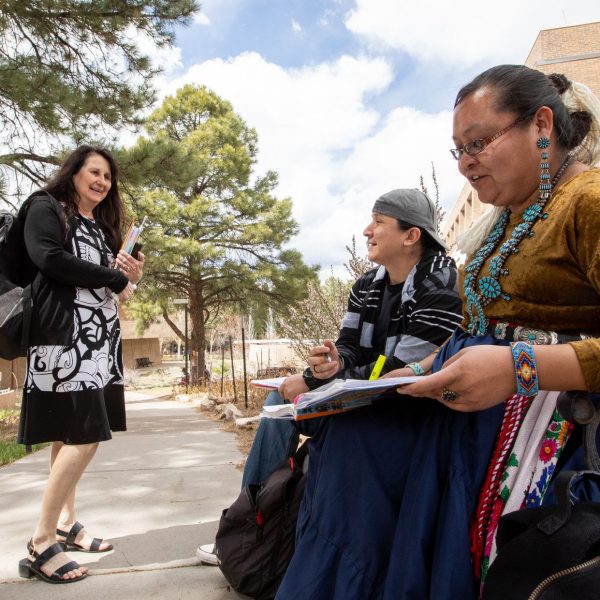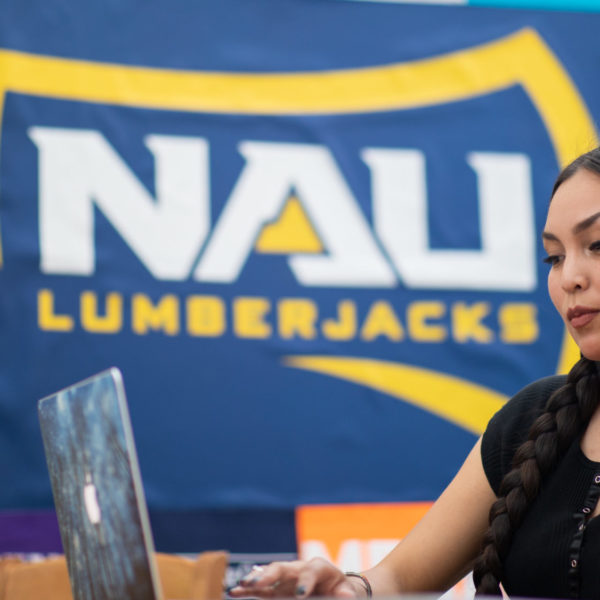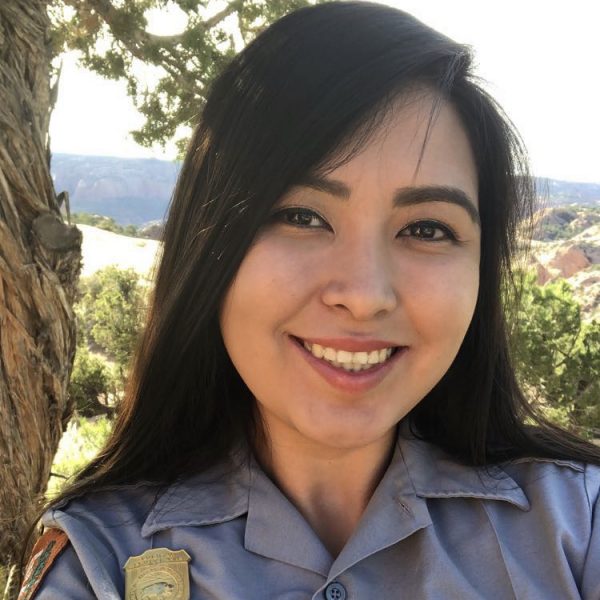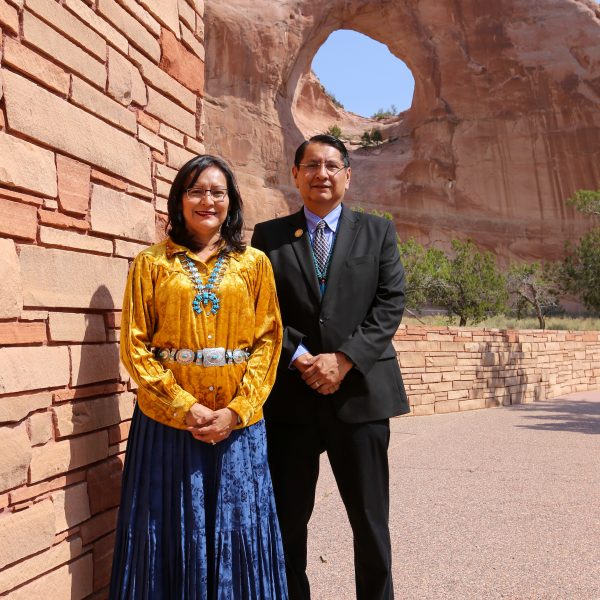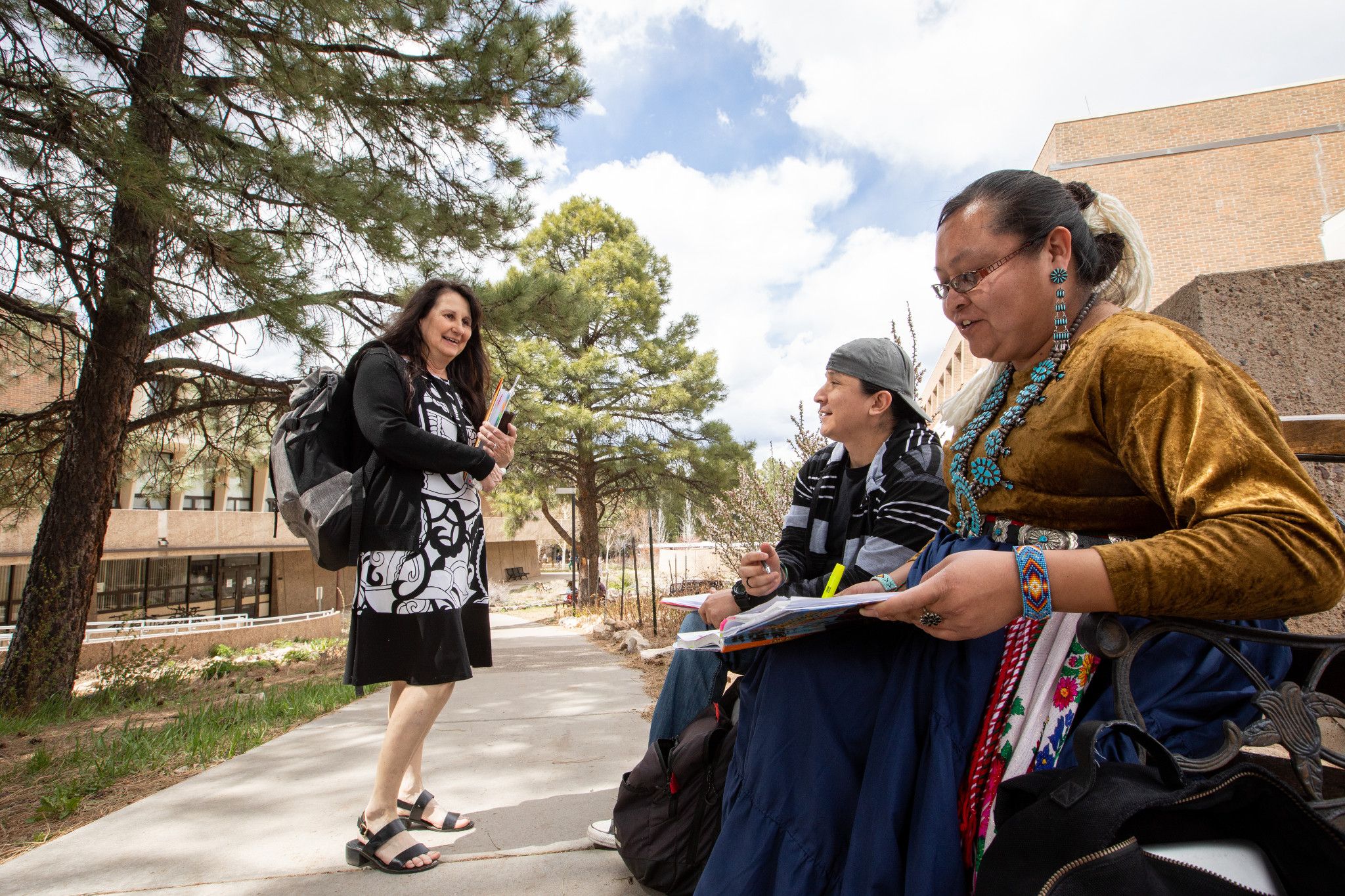
The Applied Indigenous Studies department at Northern Arizona University gives Native American students the knowledge and tools to become change agents in their communities.
Preparing a relevant workforce for tribal nations
Like preparing a cornfield, Northern Arizona University is sowing the seeds to plant jobs in Indigenous communities.
The Applied Indigenous Studies program is growing a workforce that addresses the unique aspects of Nation-building, leadership, governance, and self-determination.
“Graduates from our one-of-a-kind program are ready to apply what they’ve learned to solve real-world problems facing Indigenous country,” said Karen Jarratt-Snider (Choctaw), Associate Professor and Chair of Applied Indigenous Studies. “The AIS program applies Native ways of knowing for the benefits of Indigenous communities within the United States and abroad.”
The AIS degree program prepares graduates to enter career opportunities within Native Nations or organizations that serve Native Nations and communities. Students also use the program to pursue careers in law enforcement, court advocacy, government administration, and tribal management.
An Applied Indigenous Studies bachelor’s degree focuses on workforce development in four key areas: (1) tribal policy, politics, and administration, (2) Indigenous environmental science, health, and management, (3) cultural resource management, indigenous knowledge, and expressive culture, and (4) sustainable economic development, and Indigenous entrepreneurship.
Graduates become business owners, attorneys, community organizers, higher education professionals, teachers, elected officials, and environmental justice advocates.
Adding an Applied Indigenous Studies minor to any major is a useful career addition. Minors prepare graduates to engage with tribal communities and apply the skills from their major to a local, regional, state, and federal situation. Minors include Applied Indigenous Health Studies, Native American Studies, or Tribal Public Administration.
For current students as well as professionals who desire training in leadership, governance, administration, and management within Indigenous communities, NAU offers an Indigenous and Tribal Nation-building graduate certificate.
Online Indian Country Criminal Justice degree is the only program of its kind
To meet the need for workforce growth in criminal justice careers, NAU faculty developed an online Indian Country Criminal Justice bachelor’s degree for the Applied Indigenous Studies program. They worked with leaders of Indigenous Nations and NAU’s Department of Criminology and Criminal Justice to create the unique bachelor’s degree.
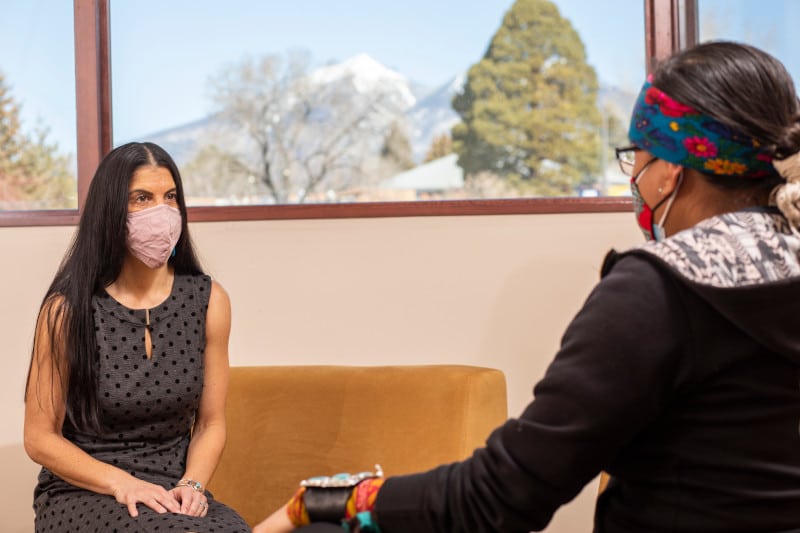
“It’s the only program of its kind in the world,” Jarratt-Snider said.
Faculty include Navajo, Choctaw, Kahnawake Mohawk, Spokane, and Pascua Yaqui. Students learn about applying federal laws, criminal jurisdiction, advocacy, court administration, and policing pedagogy—vital skills to solving crimes in Indigenous communities. They learn to navigate issues facing Indigenous cultures, such as missing and murdered Indigenous people.
The program offers a vivid understanding of what justice is in Indian Country. I’m learning that Indian Nations have the capacity to shape their futures. We are still very much in the infancy of Nation-building, and that realization brings a lot of hope and excitement.
Jason Yazzie (Navajo/Diné) is majoring in Indian Country Criminal Justice. “The program offers a vivid understanding of what justice is in Indian Country,” he said. “Most interestingly, I’m learning that Indian Nations have the capacity to shape their futures. We are still very much in the infancy of Nation-building, and that realization brings a lot of hope and excitement.”
Yazzie plans a career as a probation officer. He wants to provide resources and meaningful avenues for those who need them. “I am going to use my degree to help the Navajo people, especially those who find themselves within the confines of the justice system.”

